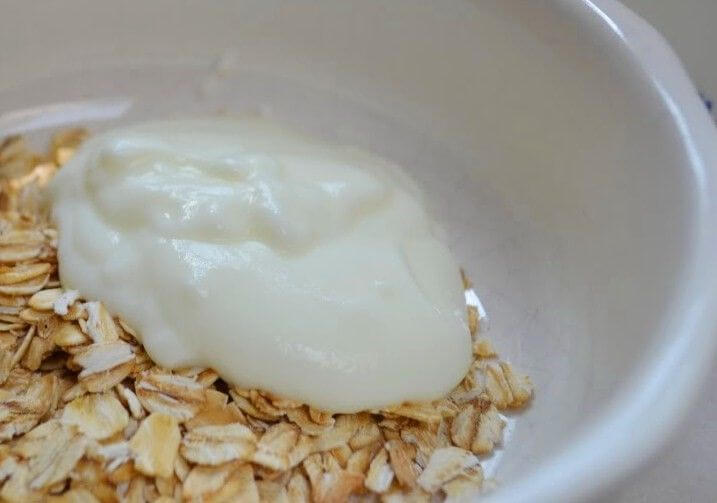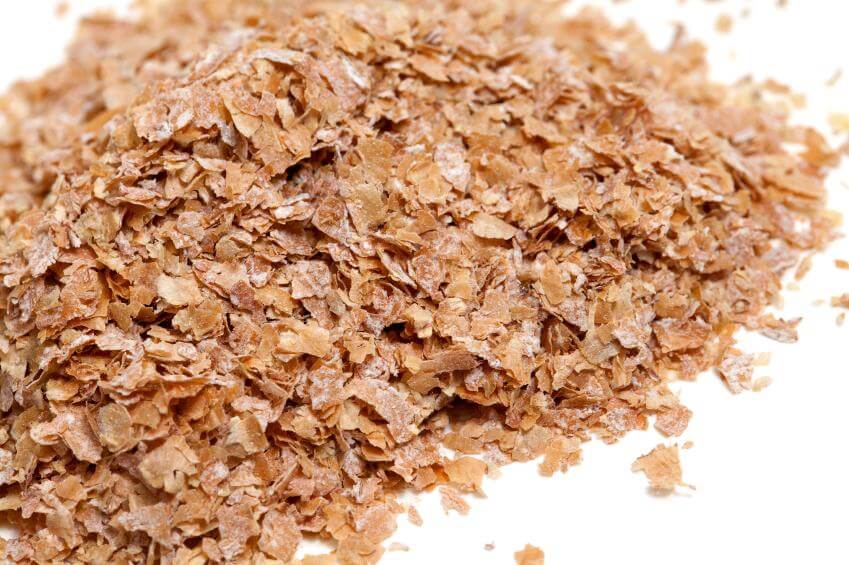7 Remedies for Severe Constipation


Written and verified by the doctor Karla Henríquez
Severe constipation should be treated promptly with a physician before other health complications develop. The inability to go to the bathroom properly is a problem that affects many adults’ quality of life and is caused by several factors. In some cases, it occurs as a side effect of some pathology.
One of the most common causes of severe constipation is an unbalanced diet, with a high content of flour and fatty foods, as well as an insufficient amount of fiber. Another cause of this problem is insufficient hydration, a sedentary lifestyle and certain medication.
Severe constipation, in addition to causing very solid stools, produces gas and colic, as well as abdominal and rectal pain. As it is a chronic problem, its management should be carried out by a professional. If necessary, your doctor may suggest lifestyle changes, laxatives, and medications.
Medical treatment of severe constipation
Before trying out any home remedies for severe constipation it must be remembered that the first line of treatment should be suggested by the doctor. According to a publication in Clinics in Colon and Rectal Surgery, initial management of this condition may include:
- Lifestyle changes
- Increased fluid intake
- Increased fiber intake
Also, depending on the case, bulk laxatives, saline laxatives, emollients, among others, may be necessary. In addition, if there are other symptoms, the professional may suggest diagnostic tests in order to rule out underlying pathologies.
With this in mind, we’ll now share some of the home remedies that have been used in popular culture for the relief of constipation. It is important to keep in mind that they should be used as a supplement and not as a sole treatment.
1. Tomatoes to help with severe constipation

Tomatoes are fruits that have high levels of fiber, and for that reason relieve severe constipation. As a meta-analysis published in the World Journal of Gastroenterology concludes, fiber intake helps increase stool frequency in constipated patients.
It can be consumed in a variety of forms, both raw and cooked. For example, it can be eaten in salads, sauces, juices, or as follows:
Ingredients
- 4 tomatoes
- 2 tablespoons of sugar
- 4 cups of water
Instructions
- Peel the 4 tomatoes then chop them up.
- Put them in a pot and sprinkle the 2 tablespoons of sugar on them.
- Add the 4 cups of water. Then, cook them for at least 45 minutes. Stir them frequently.
- Remove it from the heat and let it rest.
- Pour the mixture into a jar and put it in your fridge.
- Put it in a jug in the fridge and drink it on an empty stomach in the mornings for 3 days
2. Plums
A review published in the medical journal Alimentary Pharmacology & Therapeutics found that prunes may improve stool frequency and consistency. Therefore, they appear to be a promising treatment for constipation. However, more evidence is needed.
- In any case, it is recommended to eat 1 cup of prunes (150 g) for breakfast for at least 4 days.
3. Honey will help you with intestinal problems

Honey is known because of its multiple properties, but did you know that it can also help with your intestinal processes?
In fact, according to some studies, honey consumption has a laxative effect that may be useful against constipation. In addition, it is gentle on the stomach and helps soothe other ailments such as ulcers. The following remedy may help you get this benefit:
Ingredients
- 1 cup of water
- 1 tablespoon of pure honey
Instructions
- In a pot, heat the water and boil it for at least 10 minutes.
- After 10 minutes, turn the heat off and add the tablespoon of honey.
- Let it cool for 7 minutes.
- Drink this remedy while it’s warm, every night before going to bed and in the morning for breakfast over the course of a week.
Recommended reading: 7 Surprising Uses for Honey and Health Benefits
4. A remedy with olive oil and lemon
Olive oil with lemon is a very popular alternative remedy for constipation. In fact, a study of 50 people published in the Journal of Renal Nutrition in 2015 found that olive oil, like other oils, contributes to relieving the symptoms of constipation in dialysis patients.
Ingredients
- 1/2 lemon, juiced
- 1 tablespoon of olive oil
- 1 cup of water
Instructions
- Juice the lemon and strain the juice.
- Put the water and lemon juice in a pot.
- Boil it for 5 minutes, then turn it off.
- Add the olive oil and let it rest until it’s lukewarm before drinking.
5. Oats and yogurt for severe constipation

Oatmeal is a high-fiber cereal that can help relieve the symptoms of constipation. Even a systematic review published in the British Journal of Nutrition found that this food helps increase stool weight and increase intestinal transit.
Foods such as yogurt provide probiotics, which are highly recommended for digestive health and proper nutrient absorption. According to research published in 2015 in the Journal of Neurogastroenterology and Motility, they help improve bowel movements.
Ingredients
- 5 tablespoons of oats
- 4 natural sugar-free yogurts (500g)
Instructions
- Mix the oat flakes with the yogurt.
- Let it rest for at least 20 minutes.
- Eat it over the course of the day
Check out: 9 Benefits of Eating Oats for Breakfast
6. Linseed
Also known as flax, these seeds have omega 3 fatty acids and fiber. They can be used for relieving constipation quickly.
Ingredients
- 1 tablespoon of linseed
- 1 cup of water
Instructions
- First, you need to wash the linseed.
- After putting them in a cup of water, let them soak for 3 hours.
- Then drink the mixture before going to bed for at least 4 days.
7. Wheat bran against severe constipation

Wheat bran is a food that’s rich in iron, fiber and potassium. A study published in Digestive Diseases and Sciences found that it helps relieve constipation by improving bowel frequency, this helping to make it easier to pass stools.
Ingredients
- 3 tablespoons of wheat bran
- 1 cup of milk
- 4 tablespoons of cereals (to taste)
Instructions
- Add the wheat bran to the cup of milk and let it soak for 10 minutes.
- After 10 minutes, add the cereals. You need to eat this at breakfast time for at least 5 days.
Important!
These natural remedies must be complemented with a balanced diet, which includes fiber and plenty of liquids. In addition, if possible, it’s also important to follow an exercise routine. All of this, in addition to medical treatment, is decisive in overcoming severe constipation.
All cited sources were thoroughly reviewed by our team to ensure their quality, reliability, currency, and validity. The bibliography of this article was considered reliable and of academic or scientific accuracy.
- Portalatin M, Winstead N. Medical management of constipation. Clin Colon Rectal Surg. 2012;25(1):12–19. doi:10.1055/s-0032-1301754
- Yang J, Wang HP, Zhou L, Xu CF. Effect of dietary fiber on constipation: a meta analysis. World J Gastroenterol. 2012;18(48):7378–7383. doi:10.3748/wjg.v18.i48.7378
- Grupo de gastroenterología pediátrica zona suroeste de Madrid. (2012). Estreñimiento crónico. Guías conjuntas de actuación primaria-especializada. [En línea]. Disponible en: http://www.ampap.es/wp-content/uploads/2014/05/Estrenimiento_2012.pdf
- Lever, E., Cole, J., Scott, S. M., Emery, P. W., & Whelan, K. (2014). Systematic review: The effect of prunes on gastrointestinal function. Alimentary Pharmacology and Therapeutics. Blackwell Publishing Ltd. https://doi.org/10.1111/apt.12913
- Ladas, S. D., Haritos, D. N., & Raptis, S. A. (1995). Honey may have a laxative effect on normal subjects because of incomplete fructose absorption. American Journal of Clinical Nutrition, 62(6), 1212–1215. https://doi.org/10.1093/ajcn/62.6.1212
- Thies, F., Masson, L. F., Boffetta, P., & Kris-Etherton, P. (2014, September 30). Oats and bowel disease: A systematic literature review. British Journal of Nutrition. Cambridge University Press. https://doi.org/10.1017/S0007114514002293
- Choi, C. H., & Chang, S. K. (2015). Alteration of gut microbiota and efficacy of probiotics in functional constipation. Journal of Neurogastroenterology and Motility, 21(1), 4–7. https://doi.org/10.5056/jnm14142
- Badiali, D., Corazziari, E., Habib, F. I., Tomei, E., Bausano, G., Magrini, P., … Torsoli, A. (1995). Effect of wheat bran in treatment of chronic nonorganic constipation – A double-blind controlled trial. Digestive Diseases and Sciences, 40(2), 349–356. https://doi.org/10.1007/BF02065421
This text is provided for informational purposes only and does not replace consultation with a professional. If in doubt, consult your specialist.








